Are you curious about family planning and how it can empower your journey toward parenthood? Understanding the various options available can be both exciting and overwhelming, but it's essential for making informed decisions. From natural methods to medical interventions, the landscape of family planning is rich with knowledge that can guide you. Join us as we explore these topics in depthâyour path to informed choices starts here!

Understanding family planning options
Family planning options provide crucial tools for managing reproductive health and promoting well-being for individuals and couples. Various methods exist, including hormonal contraceptives such as birth control pills, which contain synthetic hormones like estrogen and progestin, and are effective in preventing ovulation. Intrauterine devices (IUDs), small T-shaped devices inserted into the uterus, can provide long-term contraception for up to 10 years. Barrier methods, like condoms, not only prevent pregnancy but also reduce the risk of sexually transmitted infections (STIs). Natural family planning, based on monitoring the menstrual cycle and fertility signs, offers an alternative for those preferring non-hormonal methods. Each option carries unique benefits and potential side effects, making careful consideration and consultation with healthcare providers essential for making informed choices tailored to individual health needs and lifestyle preferences.
Importance of reproductive health education
Reproductive health education plays a crucial role in empowering individuals and families to make informed choices about their reproductive lives. Understanding concepts such as contraceptive methods, sexually transmitted infections (STIs), and family planning can lead to healthier outcomes and improved quality of life for couples. Access to information about reproductive health allows individuals to navigate critical decisions during various life stages, ensuring that every pregnancy is planned and desired. Programs that emphasize communication skills often focus on building supportive environments, fostering dialogue within families about these essential topics. Additionally, community outreach initiatives in locations like schools and healthcare facilities aim to raise awareness and provide resources, ultimately contributing to lower rates of unintended pregnancies and better maternal and child health outcomes.
Access to contraceptive methods
Access to contraceptive methods significantly influences family planning capabilities across various demographics, particularly in urban centers like New York City. Numerous options, including hormonal contraceptives like birth control pills and long-acting reversible contraceptives such as intrauterine devices (IUDs), enhance reproductive autonomy. Public health initiatives (like those by Planned Parenthood) aim to increase awareness and availability of these methods, ensuring low-income communities (neighborhoods with high poverty rates) receive adequate support. Educational programs emphasize the importance of informed choices regarding family size and spacing, addressing cultural sensitivities in diverse populations. Comprehensive access to these services can result in improved health outcomes, empowered decision-making, and reduced rates of unplanned pregnancies.
Family planning resources and support
Family planning resources, such as clinics and educational workshops, offer essential information on contraceptive methods, including hormonal options like the Pill and barrier methods like condoms. Organizations such as Planned Parenthood provide access to counseling services and reproductive health education, catering to diverse needs across various demographics. Additionally, government initiatives often fund maternal and child health programs, ensuring proper access to family planning services in communities. Public health departments frequently organize outreach activities during events like World Population Day, which is celebrated annually on July 11, to promote awareness and motivate individuals to explore family planning options.
Addressing cultural and personal values
Family planning encompasses a variety of methods and practices that aim to help families make informed decisions regarding their reproductive health and future. Cultural values often play a significant role in shaping individuals' perspectives on family size, contraceptive use, and child-rearing practices. In many societies, traditional beliefs significantly influence decisions; for example, in certain regions of Africa, larger families are often seen as beneficial for economic support and cultural continuity. Meanwhile, personal values may emphasize the importance of education and career development, leading individuals to prefer smaller family sizes. In urban environments like New York City, access to healthcare and education influences choices, with many opting for delay in childbirth to pursue professional goals. Understanding these cultural and personal dimensions is crucial for effective family planning discussions, ensuring that information shared respects individual beliefs while promoting informed choices related to reproduction and family health.
Letter Template For Family Planning Information Samples
Letter template of Family Planning Information for Health Care Providers
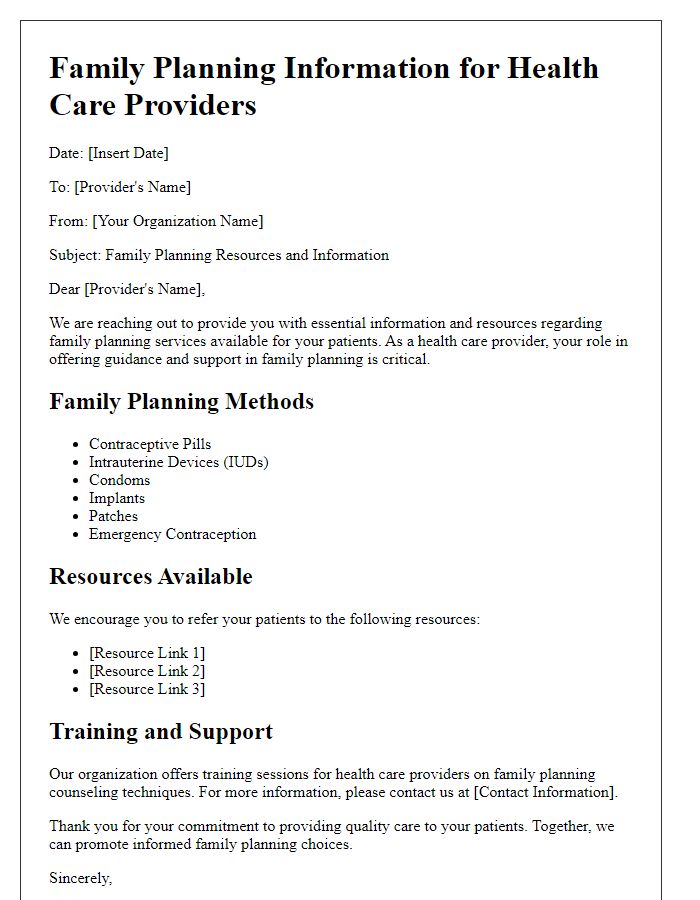

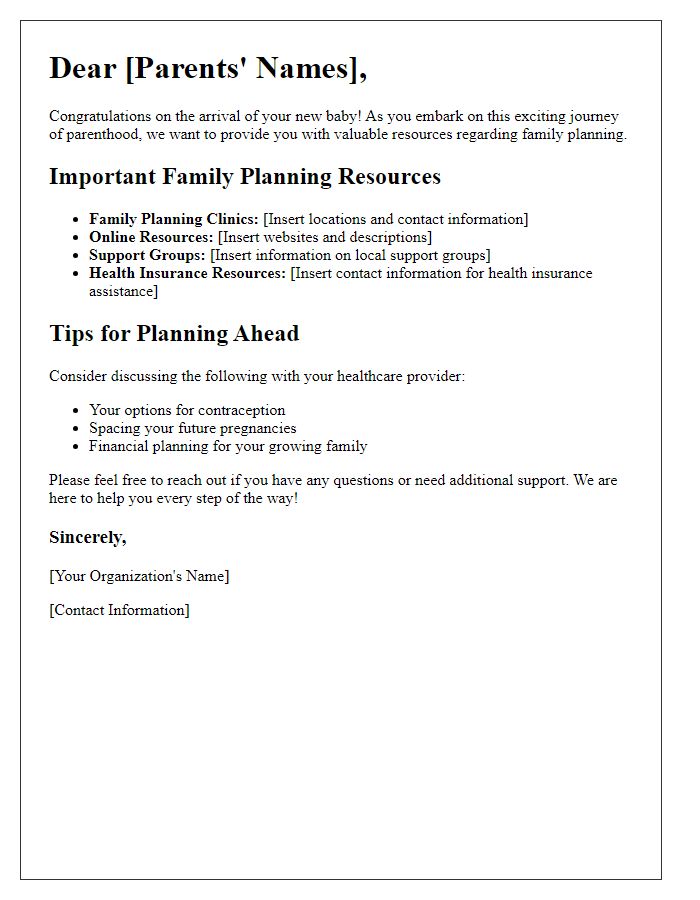
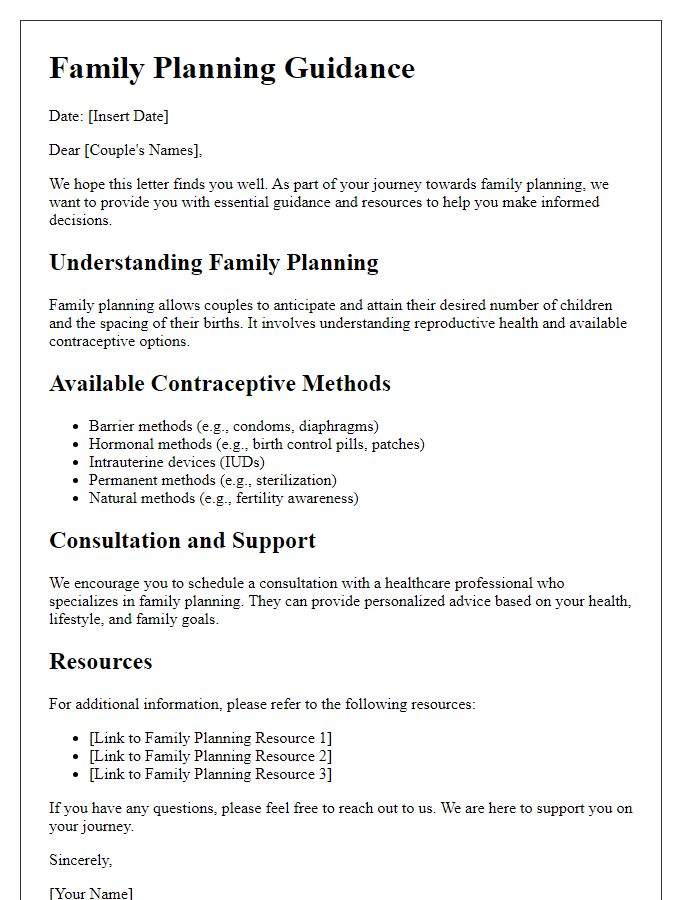
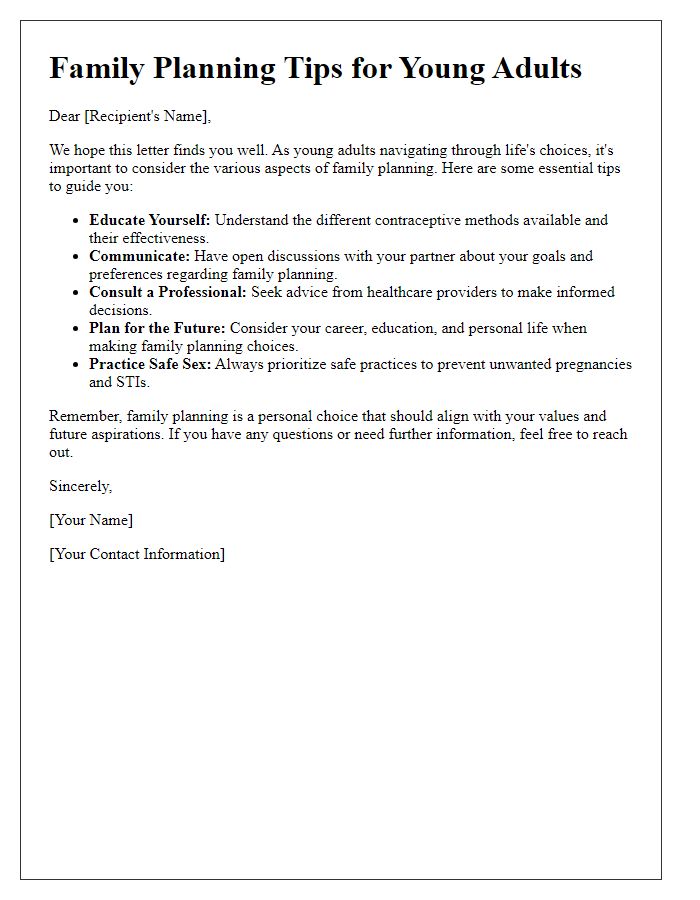
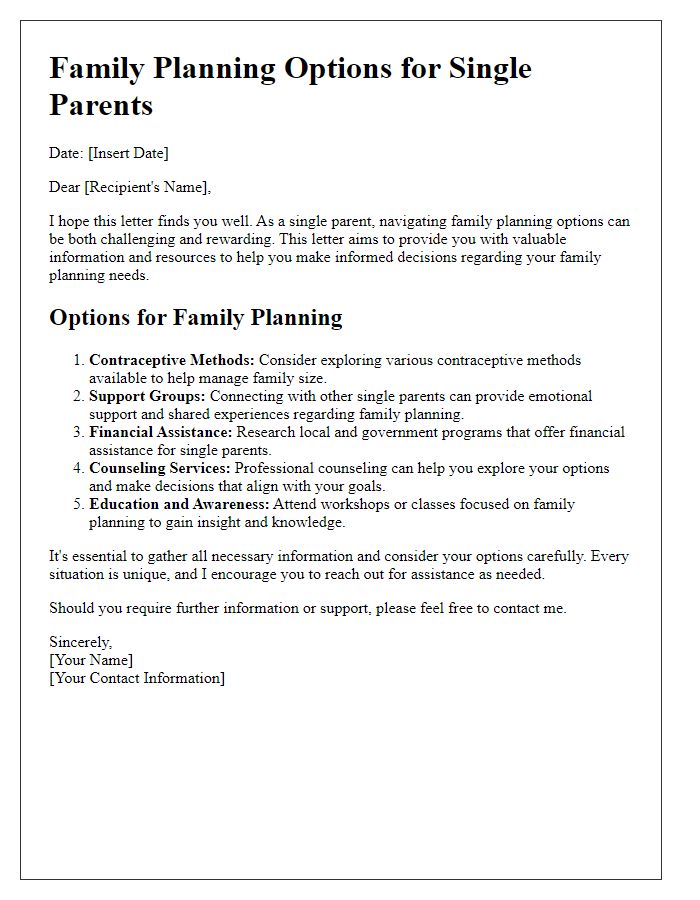
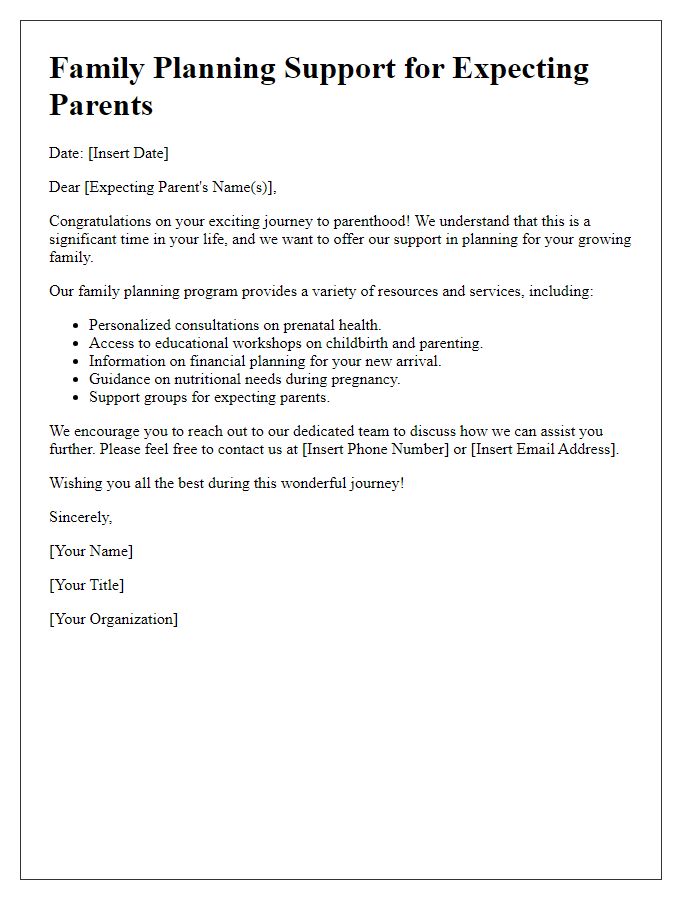
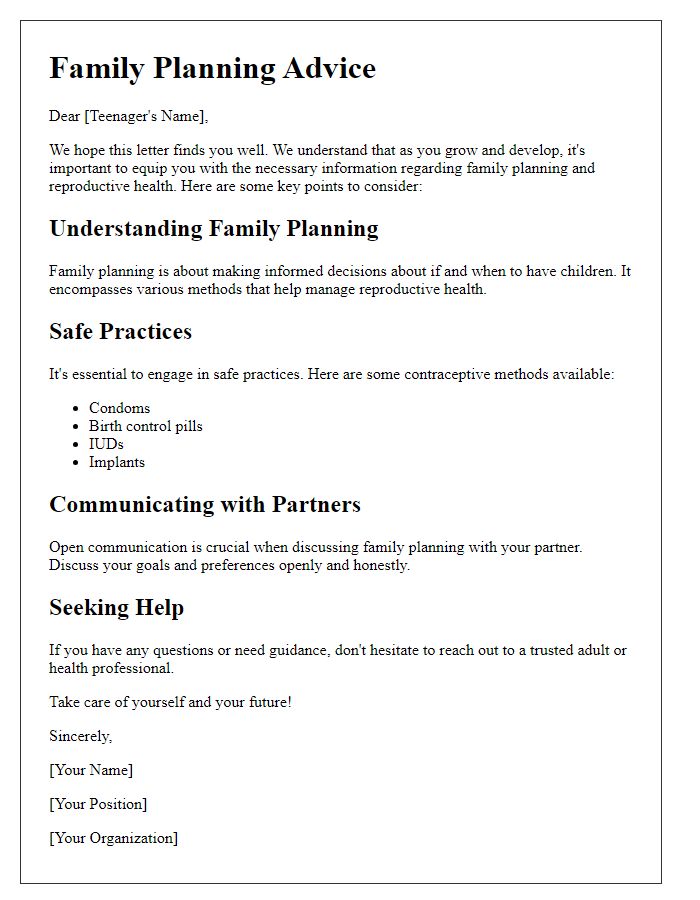
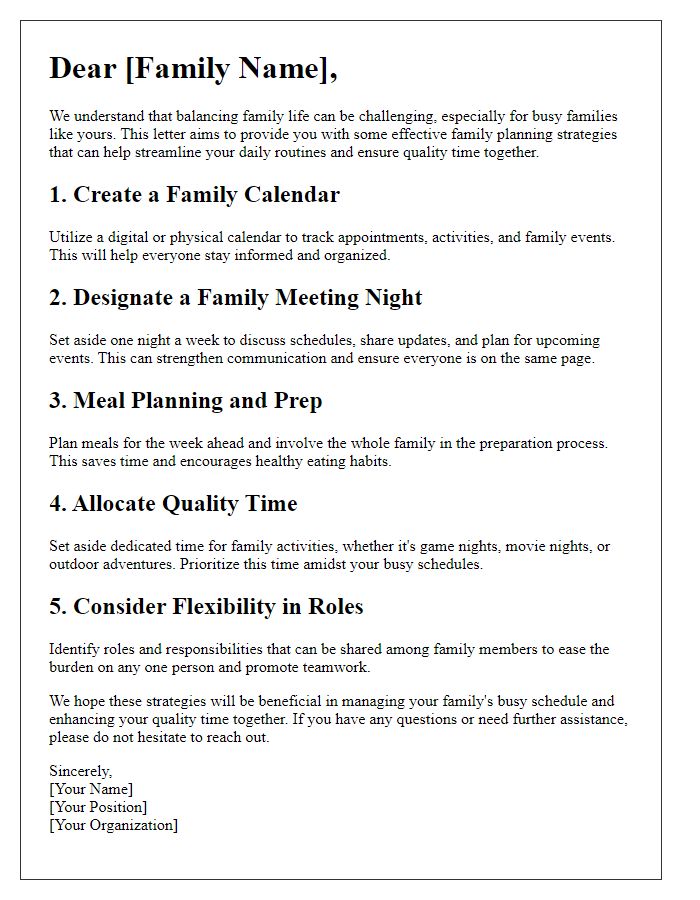
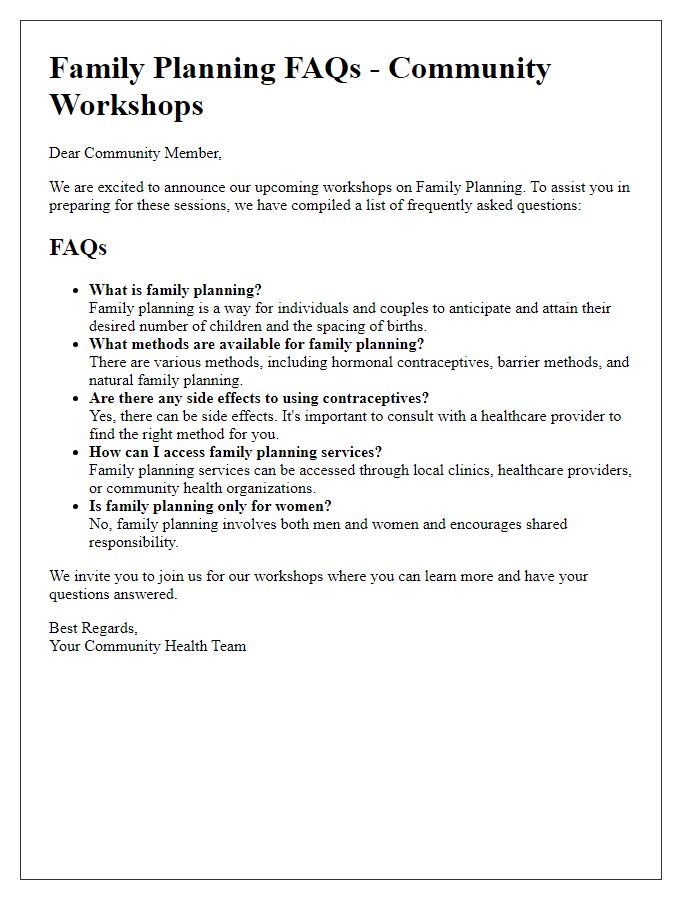
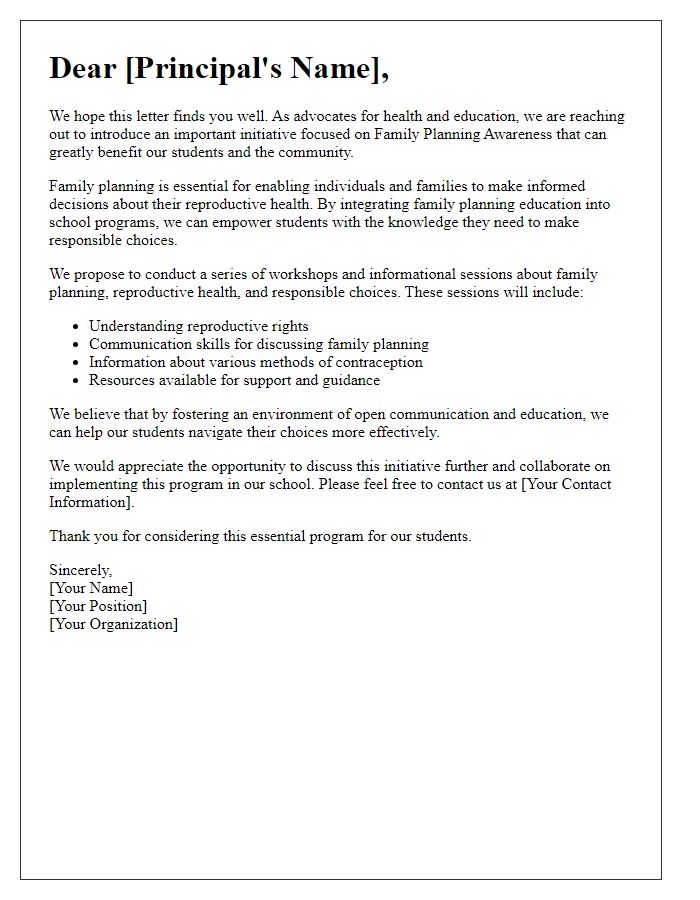


Comments